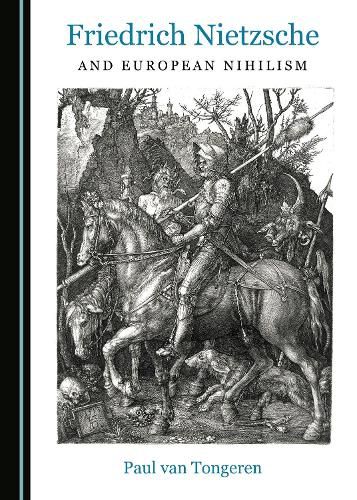Readings Newsletter
Become a Readings Member to make your shopping experience even easier.
Sign in or sign up for free!
You’re not far away from qualifying for FREE standard shipping within Australia
You’ve qualified for FREE standard shipping within Australia
The cart is loading…






This book is a thorough study of Nietzsche’s thoughts on nihilism, the history of the concept, the different ways in which he tries to explain his ideas on nihilism, the way these ideas were received in the 20th century, and, ultimately, what these ideas should mean to us. It begins with an exploration of how we can understand the strange situation that Nietzsche, about 130 years ago, predicted that nihilism would break through one or two centuries from then, and why, despite the philosopher describing it as the greatest catastrophe that could befall humankind, we hardly seem to be aware of it, let alone be frightened by it.The book shows that most of us are still living within the old frameworks of faith, and, therefore, can hardly imagine what it would mean if the idea of God (as the summit and summary of all our epistemic, moral, and esthetic beliefs) would become unbelievable. The comfortable situation in which we live allows us to conceive of such a possibility in a rather harmless way: while distancing ourselves from explicit religiosity, we still maintain the old framework in our scientific and humanistic ideals. This book highlights that contemporary science and humanism are not alternatives to, but rather variations of the old metaphysical and Christian faith. The inconceivability of real nihilism is elaborated by showing that people either do not take it seriously enough to feel its threat, or - when it is considered properly - suffer from the threat, and by this very suffering prove to be attached to the old nihilistic structures.Because of this paradoxical situation, this text suggests that the literary imagination might bring us closer to the experience of nihilism than philosophy ever could. This is further elaborated with the help of a novel by Juli Zeh and a play by Samuel Beckett. In the final chapter of the book, Nietzsche’s life and philosophy are themselves interpreted as a kind of literary metaphorical presentation of the answer to the question of how to live in an age of nihilism.
$9.00 standard shipping within Australia
FREE standard shipping within Australia for orders over $100.00
Express & International shipping calculated at checkout
This book is a thorough study of Nietzsche’s thoughts on nihilism, the history of the concept, the different ways in which he tries to explain his ideas on nihilism, the way these ideas were received in the 20th century, and, ultimately, what these ideas should mean to us. It begins with an exploration of how we can understand the strange situation that Nietzsche, about 130 years ago, predicted that nihilism would break through one or two centuries from then, and why, despite the philosopher describing it as the greatest catastrophe that could befall humankind, we hardly seem to be aware of it, let alone be frightened by it.The book shows that most of us are still living within the old frameworks of faith, and, therefore, can hardly imagine what it would mean if the idea of God (as the summit and summary of all our epistemic, moral, and esthetic beliefs) would become unbelievable. The comfortable situation in which we live allows us to conceive of such a possibility in a rather harmless way: while distancing ourselves from explicit religiosity, we still maintain the old framework in our scientific and humanistic ideals. This book highlights that contemporary science and humanism are not alternatives to, but rather variations of the old metaphysical and Christian faith. The inconceivability of real nihilism is elaborated by showing that people either do not take it seriously enough to feel its threat, or - when it is considered properly - suffer from the threat, and by this very suffering prove to be attached to the old nihilistic structures.Because of this paradoxical situation, this text suggests that the literary imagination might bring us closer to the experience of nihilism than philosophy ever could. This is further elaborated with the help of a novel by Juli Zeh and a play by Samuel Beckett. In the final chapter of the book, Nietzsche’s life and philosophy are themselves interpreted as a kind of literary metaphorical presentation of the answer to the question of how to live in an age of nihilism.